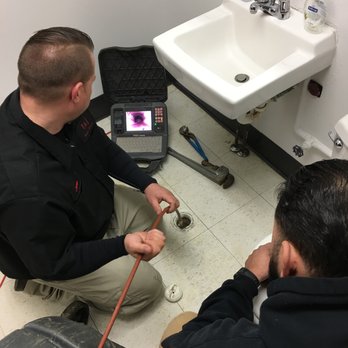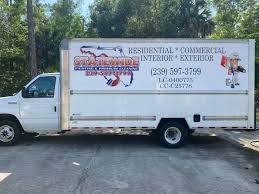
You may be worried about selling your solar panel-equipped home. You may face objections and questions regarding the legality of the situation. But there are also options for home buyers who do not want the panels. They could ask the seller to take the panels down. The solar company that installed them can be contacted to determine the cost of moving them.
Possible objections to selling property with solar panels
It can be difficult to sell a house equipped with solar panels. Some buyers might not want to make the investment. There are many benefits to solar panel installation. Solar panels are a cost-saving option that can cut down on your energy consumption. This can be attractive for those living in expensive areas. Be clear about the savings that you've achieved and whether or not existing utility agreements will transfer. You can also provide utility bills for prospective buyers from before the installation of the panels in order to show the savings.
Another misconception homeowners have about solar panels is that they will be too expensive. This is a common misconception. Solar panels are cheaper than other energy sources and are also less expensive than electric bills. Solar energy is also a renewable source. Additionally, solar panels can easily be sold and reinstalled. They are also not subject to high electricity bills.

Legal implications when selling a house featuring solar panels
You should be aware of the legal implications of selling your home equipped with solar panels or hybrid systems. First, it is important to determine who owns the solar system, and whether you are leasing it from someone else or buying it. The purchase and sale agreement must include the payment and accounting for the solar panels.
The financial implications of solar leases can cause real estate transactions to be complicated. These leases require homeowners to place lien on their homes. This can make it difficult for them to sell or refinance their house. PACE loans can have liens as a condition for repayment. This can make it more difficult to transfer ownership.
While solar energy systems can increase property value, buyers may not understand how much extra they cost. This can lead the buyer to be distrustful and even result in a non-sale. Some mortgage companies won't lend money to a home with solar panels, particularly if it is still under lease.
Selling a house equipped with solar panels and without a lease
Selling a house with solar panels can be a challenge. It can not only require negotiations with the solar leasing firm, but it could also delay a sale. Without the payment of the solar panels, a buyer may not be eligible for a mortgage. It is vital to have a copy of your lease agreement. Also, make sure that you fully understand the terms of the solar lease.

Selling a house equipped with solar panels can be easier than you might think. This guide will help explain the legalities, requirements and procedures for selling a home with solar panels. This guide will explain both the benefits and risks of each financing method. The type of financing you choose will determine whether solar panels are included in the sale price. If so, it is a good idea to speak with the leasing company prior to selling your house.
The solar company will issue a document confirming that the buyer will be responsible for making the monthly lease payments. It might take up to three working days for you to receive the document. However, if the solar leasing company approves the buyer, they can transfer the lease to the new buyer.
FAQ
What is the purpose and scope of the service agreement
A Service Agreement is a contract that defines the terms and conditions under which a customer can purchase goods from your company. It also defines how you will provide those services to them for payment.
The most commonly used form of this document, is the Sales Order Form. Here you will list the items being purchased and their prices. The order will also include any additional items, such as delivery costs, VAT, insurance, and so forth. Finally, you will specify when the order should delivery and be paid for.
You can use a different document depending upon the transaction's nature.
For example, if you are providing a service rather than selling a product, you may use an invoice instead.
You would probably use a Purchase Order Form if you buy something from someone else.
All information is required when preparing a sales order.
Remember: The buyer will understand your sales order form if it is more detailed.
Do I Need A Legal Representative To Sign My Service Agreements?
No. You do not need to appoint a legal representative in order to sign your service agreements. However, you may want to appoint one as a precautionary measure.
People who act for another person are called legal representatives. You may wish to appoint someone to represent you professionally if you are a contractor.
This could involve hiring a solicitor, accountant, or other professional. This could be a matter of appointing someone who will look after your business interests.
The client usually appoints a legal representative. Sometimes, however, the vendor may hire a legal representative.
A legal representative can help you to protect yourself legally in either of these cases.
What documents must I show to get building permission?
Additional to your SCA, you will need proof that:
-
Visitors have ample parking space.
-
It is possible to use access routes;
-
All utilities are easily accessible.
-
All works comply with relevant planning regulations.
What is a service contract agreement?
An agreement between two parties for the provision of services is called a Service Contract Agreement (SCA). The SCA details the services being provided, the time and effort they should be used, who should pay for them, when they will start, and how much. The agreement also specifies what happens to the other party if they breach their obligations.
What is a Service Agreement Format?
A service agreement templates is a template that contains all the details for a particular service agreement. You can use a service agreement templates to create a standard type of agreement.
Service agreements are crucial because they set the boundaries between two parties.
They aid in understanding the needs and expectations of both parties. They make sure that both parties understand what they are signing before they sign off on a deal.
Statistics
- Depending on the client's trustworthiness and financial stability, a deposit is usually 10 to 50% of the total contract amount. (lawdepot.com)
- (1) Except as provided in paragraphs (a)(4) and (a)(8) of this section, if the estimated amount of the contract or subcontract is $10 million or more, the contracting officer shall request clearance from the appropriate OFCCP regional office before- (acquisition.gov)
- (ii) Name, address, and telephone number of each proposed first-tier subcontractor with a proposed subcontract estimated at $10 million or more. (acquisition.gov)
- (v) Place or places of performance of the prime contract and first-tier subcontracts estimated at $10 million or more, if known. (acquisition.gov)
- (1) Ascertain the extent to that offers are based on the payment of overtime and shift premiums; and (2) Negotiate contract prices or estimated costs without these premiums or obtain the requirement from other sources. (acquisition.gov)
External Links
How To
What should a service agreement include?
Any business relationship requires a Service Agreement. It describes what you expect of each other and how to achieve it. The SA also defines when and where you expect the other party to deliver on its contractual obligations.
These are the key components of a successful SA:
-
The scope of work and services required by both parties.
-
Information about payment terms, including the start and end dates for delivery of goods/services.
-
An agreed price for your project.
-
Additional costs, such as VAT, etc.
-
Whether there is any other matter that should be discussed.
-
Who will take responsibility if there is an error in the job?
-
How disputes are resolved
-
What happens if one of the parties breaches the contract?
-
What happens in case of dispute.
-
When does the contract come into effect?
-
What happens if one or both of the parties fail to perform.
-
What length of time will you be required to pay invoices
-
Who pays for travel costs?
-
Where the money comes.
-
What happens when the client has a change of mind?
-
What happens if your supplier doesn't show up?
-
Who has access during construction to the site?
-
What happens if the customer cancels?
-
What happens when the product is defective?
-
What happens if the manufacturer refuses parts?
-
What happens if your equipment breaks down?
-
What happens if the project takes longer than expected.
-
What happens if the work isn’t completed within the stipulated time?
-
What happens to the project if it isn't up-to-standard?
-
What happens when the cost is too high?
-
What happens if you don't receive your materials on time?
-
What happens if the material arrives damaged?
-
What happens to the products if they are not up-to-standard?
-
What happens if you cancel the job before it is complete?
-
What happens when the company goes under?